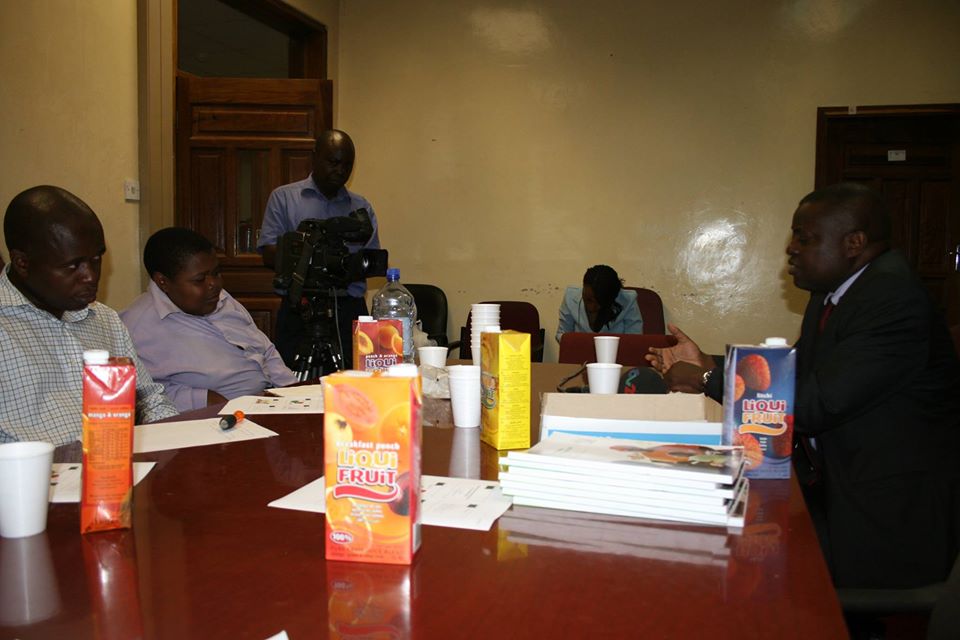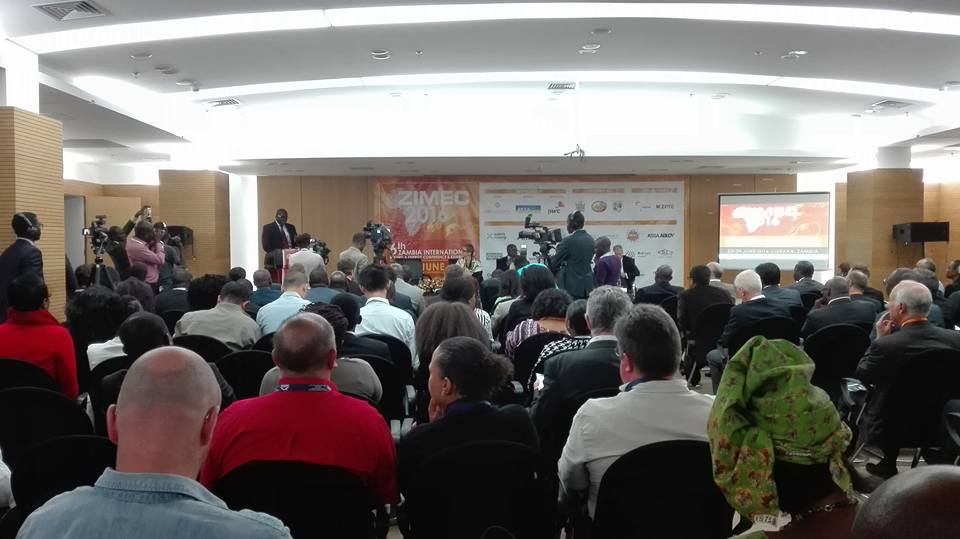Is Zambia a malaria free nation?
Notice: Undefined index: catFilterList in /home/zambi/public_html/wp-content/plugins/wp-likes/api.php on line 243
By Derrick Sinjela – posted in Cry My Beloved Country Zambia on Wednesday, March 26, 2014
HEALTH specialists at Lusaka’s Ndeke House argue that Zambia will soon become a malaria free nation following steadfast interventions mounted to keep the world number one killer disease at bay.
Perhaps as an assurance of this resolve, a Zambia National Malaria Indicator Survey 2010 (ZNMIS), her capital city-Lusaka has already become a malaria free zone.
Directorate of Public Health & Research at the Ministry of Health (MoH) Director Dr. Victor Mukonka is excited that years of investment in research and interventions are yielding positive results following a firm commitment by successive Governments to fighting malaria.
“Zambia remains committed to the fight against malaria as evidenced by a strong political will and leadership, increased financial resources, strengthened and well coordinated partnership and enhanced community engagement,” Dr. Mukonka told a Zambia Health Writers Forum (ZHWF) convened by veteran journalist Zarina Geloo recently.
Dr. Mukonka pointed out that after recording 3.2 million cases as indicated by a 2009 (ZHMIS) integrated interventions and as decentralized system had helped in reversing the noted incidence of malaria in Zambia.
While recording giant strides, three of the nine provinces namely-Luapula, Northern and North-Western provinces remain prone to malaria, though proactive measures are being undertaken to reverse the trend.
Dr. Mukonka remains optimistic of a reversal of the noted malaria burden as attested to by increased access to targeted diagnosis and community treatment.

Dr. Victor Mukonka at a Ministry of Health (MoH) Zambia Health Writers Forum (ZHWF) with Benedict Tembo -Picture by Derrick Sinjela on Tuesday February 8th 2011
More than 300 million cases of malaria are reported each year worldwide and out of this number, about 3,000 deaths are recorded every day, reads a report presented by Fred Masaninga at a Malaria Advocacy Meeting (MAM) for the Zambian House of Chiefs (ZHoC) in Lusaka recently.
And the Annual Health Statistical Bulletin (AHSB) for 2005 reveals that about 3.5 million cases of malaria were reported in the year 2005/6 in Zambia.
Zambia is endemic or malaria-prone as cases are reported throughout the year, although they increase mainly during the rainy season.
Although malaria continues to be the major cause of visitation to health facilities, the national incidence of the disease has been reducing over the period from 2003 to 2005.
According to information obtained from the Health Management Information Systems (HIMS), national malaria incidence decreased from 425 per 1,000 population in 2003 to 383 per 1,000 population in 2004 and 373 per 1,000 population in 2005.
A comparison of malaria incidence in provinces shows that malaria incidences for Central, Copperbelt, Eastern, Southern and Western provinces have been decreasing over the past three years. The remaining provinces recorded a fluctuating pattern of malaria incidence during the period 2003 to 2005.
In 2005, malaria incidence was the highest in Eastern Province with 447 per 1,000 population followed by North-Western Province with 439 per 1,000 population. Lusaka Province had the lowest incidence with 313 cases per 1,000 population during the year under review.
Overall, malaria incidence was about six times higher in the under-five years age group than the age group of five and above. The report also shows that in 2005, Eastern Province recorded 68 cases per 1,000 admissions with the highest malaria hospital case fatality rate followed by Southern Province with 55 per 1,000. The lowest fatality rate was in North-Western Province with 24 per 1,000 population.
Malaria is not only a killer disease, but also affects the mental development of children who survive it. The disease also causes miscarriages in normal pregnancies and, worse still, still-born births.
It is because of the dangers that this tropical disease poses that Government, through the Ministry of Health (MoH) and the National Malaria Control Centre (NMCC) in particular, organised a malaria advocacy meeting for the House of Chiefs.
The meeting attracted a total of 27 traditional leaders from all the nine provinces.
The aim of the meeting was to orient traditional leaders on malaria prevention and control, establish partnerships and strengthen the role of chiefs in malaria prevention and control.
“The meeting has been organised in order to give an opportunity to another level of leadership to re–affirm our commitment towards reducing malaria illnesses and deaths in our nation,’’ said Health Deputy Minister, Dr. Lwipa Felix Puma during the official opening of the meeting.
Dr Puma described the malaria situation in the country as a serious health problem that has inflicted untold suffering among people, especially children under the age of five, pregnant women and the chronically ill.
Dr Puma told the traditional leaders that malaria was responsible for 45 per cent of all hospital admissions and out-patient attendances, the majority being children under the age of five and pregnant women.
He added that, in the year 2005, about four million clinical cases were reported with 8,000 deaths recorded at health facilities countrywide.
However, the Deputy Minister, Dr. Lwipa Feix Puma said that the Ministry of Health has developed interventions that have led to a 10 per cent reduction in malaria cases recorded at health facilities countrywide.
Interventions
In order to achieve greater impact in the control of malaria, the following measures have been put in place:
• Adoption of Artemisinin-based combination therapy commonly known as Coartem as first line treatment for uncomplicated malaria.
• Introduction of Rapid Diagnostic Tests (RDTS) in areas with no microscope services to improve malaria diagnostic capacity.
• Provision of free long lasting insecticide-treated nets distributed through a mass campaign.
• Intensification of indoor residual spraying campaigns in the targeted districts.
• Development of a communication strategy for Information, Education and Communication (IEC) to coordinate and guide the implementation of strategic communication interventions.
• Establishment of a monitoring and evaluation system.
To add to these interventions that the Ministry of Health has put in place, Government wants to seek support and commitment from traditional leaders. The chiefs are expected to support the implementation of malaria control programmes by encouraging their subjects to use available malaria preventive measures.
The ministry of Health also wants to engage chiefs to liaise with the fisheries department to combat the misuse of mosquito nets which are being used for fishing.
And Chairperson of the House of Chiefs, his Royal Highness Chief Mumena said the House was unhappy that traditional leaders were not fully involved in the control and prevention of malaria when they had the capacity and mandate to ensure the health of their subjects.
Chief Mumena commended Government for the efforts put in place in combating the tropical disease and warned that anyone found derailing the Malaria Control Progrmme would be punished.
“We ought to make our stance clear that we are in support of Government efforts and anyone found derailing malaria control programmes should be punished,” warned the traditional leader.
At the same meeting, director of public health and research, Victor Mukonka, observed that the role of chiefs in the prevention and control of malaria is very vital if Government was to achieve the goals set at both national and international levels,
“In order to minimise difficulties in reaching the community, there is need to involve traditional leaders as they can assist in addressing the problem of malaria because community members hold them in high esteem,” observed Dr Mukonka.
Dr. Mukonka cited other reasons for involving traditional leaders as commanding respect and subjects would, therefore, rather listen to their chiefs.
According to a paper presented by Dr. Mukonka, traditional leaders can act as a powerful role model for their communities, they can inspire and encourage their communities to demand resources and change the course of malaria.
Chiefs can also motivate proper use of all interventions especially mosquito nets.
In his paper titled ‘The Role of Traditional Leaders in Malaria Control and Prevention‘, Dr. Mukonka says as role models, chiefs should exhibit behavior consistent with controlling malaria all year round.
He says traditional leaders should engage community leaders in discussions and malaria control, and remind them of their roles in modeling proper behaviour.
As role models, chiefs are also expected to enhance by-laws to reflect commitment to malaria control, motivate proper use of all interventions, especially the use of nets by setting standards and discouraging misuse and uplift the living standards of people living in rural areas so that they can access interventions available to them.
The paper further says chiefs should support community level efforts to creatively recognise good malaria control behaviour with incentives such as acknowledging household efforts by giving them free nets.
National Malaria Control Centre (NMCC), Information, Education and Communications Specialist (IECS), Pauline Wamulume, cited the following as some of the challenges being faced in the fight against malaria.
Challenges in control and prevention of malaria
• Coordination of partners at all levels
• Inadequate transport at district level
• Community awareness and participation
• Inadequate health education materials, especially in Local languages.
• Community mobilisation activities are event-driven
• Inadequate involvement of religious and traditional leaders
• Low uptake of second and third doses of malaria prevention medicines by pregnant women
• Poor health-seeking behaviour
• Non-adherence to treatment
• Low use of mosquito nets
• Misuse of nets especially in areas surrounded by lakes and rivers
• Lack of community participation in re-treatment campaigns.
While chiefs are happy that the Ministry of Health and National Malaria Control Centre in particular, has realised their importance in the prevention and control of malaria, they have their own recommendations towards the fight.
Recommendations of the House of Chiefs
• Chiefs want to be considered as partners in malaria control
• They want to be assisted with transport, especially bicycles
• Called for eradication of breeding places
• Chiefs to be patrons of heath committees
• Seminars to be held in villages
• Chiefs to enforce proper use of mosquitoes
• Make nets available to all
• Increase neighbourhood committees and motivation to be provided
• Ensure that villages are clean
• Chiefs will provide leadership in the fight against malaria
• Declare war on the mosquitoes.
It is clear that both Government and traditional leaders are concerned about the malaria situation in the country as can be seen by the commitment from both parties.
It, therefore, remains to the two parties to ensure that they strengthen the partnership by being practical and implementing the recommendations.
With the involvement of all stakeholders, it is possible to roll back malaria and rid Zambia of this killer disease
Note. Additional Data from ZANIS=Dr Victor Mukonka at a MoH Zambia Health Writers Forum pix by Derrick Sinjela Tue Feb 8th 2011 (4).jpg https://www.facebook.com/derricksinjela?__tn__=%2Cd%2AF%2AF-R&eid=ARDSTWS0dnD-PD4jFnzImx6RMHWvpVIxylSt-_qVxL6otexunjeaxWB9upVjY46H5uQlJGWKDHrmS5wg&tn-str=%2AF























